|
Books Should Be Free Loyal Books Free Public Domain Audiobooks & eBook Downloads |
|
|
Books Should Be Free Loyal Books Free Public Domain Audiobooks & eBook Downloads |
|
Literature |
|---|
|
Book type:
Sort by:
View by:
|
By: Algernon Blackwood (1869-1951) | |
|---|---|
 Four Weird Tales
Four Weird Tales
Four stories: The Insanity of Jones, The Man Who Found Out, The Glamour of the Snow, and Sand. Tales by one the greatest practitioners of supernatural literature. Reincarnation, the Occult, and mystery. | |
 John Silence
John Silence
Six stories about Dr. John Silence if you want the shivers to run up your back, this is the right place to be | |
By: Anne Austin (1895-??) | |
|---|---|
 Murder at Bridge
Murder at Bridge
Set in the affluent town of Hamilton, Austin’s classic presents a whodunit mystery focusing on a crime involving a young woman who has been murdered under mysterious circumstances during a game of Bridge, with no hard evidence pointing to the perpetrator. Accordingly, the townspeople are also affected by the mystery and they refuse to play the dummy in fear of sharing the same fate as the unfortunate victim. A gripping mystery crime novel, Murder at Bridge evokes feelings of suspense, awe, mystery and puts to the test the crime solving capabilities of the audience as they take up the role of detective... | |
By: Sir Thomas Malory | |
|---|---|
 Le Morte d'Arthur
Le Morte d'Arthur
Le Morte d’Arthur (spelled Le Morte Darthur in the first printing and also in some modern editions, Middle French for la mort d’Arthur, “the death of Arthur”) is Sir Thomas Malory’s compilation of some French and English Arthurian romances. The book contains some of Malory’s own original material (the Gareth story) and retells the older stories in light of Malory’s own views and interpretations. First published in 1485 by William Caxton, Le Morte d’Arthur is perhaps the best-known work of English-language Arthurian literature today. Many modern Arthurian writers have used Malory as their source, including T. H. White for his popular The Once and Future King. | |
By: Susan Coolidge (1835-1905) | |
|---|---|
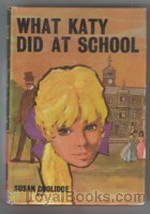 What Katy Did at School
What Katy Did at School
The continuing story of Katy Carr, recounting the time she spent at boarding school with her sister Clover. | |
 Verses
Verses
Susan Coolidge was the pen name of Sarah Chauncey Woolsey, who is best known for her What Katy Did series. This is the first of three volumes of her verse. | |
By: George Manville Fenn (1831-1909) | |
|---|---|
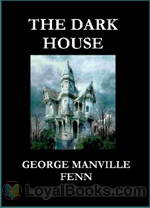 The Dark House
The Dark House
An extremely wealthy but reclusive man has died, leaving an eccentric will which hints at great riches hidden somewhere in the house. Most of the people at the reading of the will did not know the deceased in person, but had received kindnesses from him, for instance by the payment of school and university fees. The principal beneficiary, a great-nephew, also did not know him. The only two people who really knew him were the old lawyer who dealt with his affairs, and an old Indian servant. Yet when the will had been read, and they all went to where the treasure–gold, jewels and bank-notes–were supposed to be hidden, nothing could be found. | |
By: Philip K. Dick (1928-1982) | |
|---|---|
 The Crystal Crypt & Beyond the Door
The Crystal Crypt & Beyond the Door
Two early science fiction stories by the wonderful craftsman, Philip K. Dick. In the Crystal Crypt, taken from the 1954 Planet Stories, the war between Mars and Terra is about to erupt and earth has only merchants and salesmen to fight; can they carry out their mission? Beyond the Door is a story that asks and answers the question: what lives beyond the door? And is it dangerous? | |
 The Defenders
The Defenders
The terrible destruction of total nuclear war between the Western and Eastern Blocks has succeeded in sterilizing the surface of the earth. No living creature can now exist there and all humans on both sides, have fled to the hives built miles below the surface where they constantly work to produce the war materials necessary to carry on the battle. For 8 years now, the actual fighting between these super powers has been conducted by robots known as Ledeys since only they can sustain the terrible levels of radiation caused by the constant bombardment... | |
 Beyond Lies the Wub & The Skull
Beyond Lies the Wub & The Skull
Two stories in the inimitable Philip Dick style. What is a Wub? A 400 pound slovenly, fat, ungainly, drooling animal that looks like a cross between a walrus and an enormous hog? Well, yes that is pretty much what he looks like and for 50 cents, a good bargain no matter how he tastes. The hungry spaceship crew expect to find out. Of course the Wub may not entirely agree but it doesn't have much to say about it. The second story, The Skull, is a skilful mesh of time travel, unscrupulous governments, prisoners, and religion. With an assassin thrown in for good measure. Enjoy! | |
By: Ivan S. Turgenev (1818–1883) | |
|---|---|
 Fathers and Sons
Fathers and Sons
The fathers and children of the novel refers to the growing divide between the two generations of Russians, and the character Yevgeny Bazarov has been referred to as the “first Bolshevik”, for his nihilism and rejection of the old order. Turgenev wrote Fathers and Sons as a response to the growing cultural schism that he saw between liberals of the 1830s/1840s and the growing nihilist movement. Both the nihilists (the “sons”) and the 1830s liberals sought Western-based social change in Russia... | |
By: H. G. Wells (1866-1946) | |
|---|---|
 The War in the Air
The War in the Air
War in the Air was written during a prolific time in H. G. Wells's writing career. Having withdrawn from British politics to spend more time on his own ideas, he published twelve books between 1901 and 1911, including this one. while many British citizens were surprised by the advent of World War I, Wells had already written prophetically about such a conflict. War in the Air predicted use of airplanes in modern war. | |
 In the Days of the Comet
In the Days of the Comet
William ("Willie") is a student living in the British town of Clayton. As a Socialist, he tries to move power from the upper class to the working class. Interestingly, in a fictitious confrontation Britain declares war on Germany. Willie falls in love with Nettie, but when she elopes with an upper-class man, Willie resolves to kill them both. Throughout the novel there is present in the sky a large comet which gives off a green glow. As Willie prepares to shoot the lovers, two battleships appear and begin shelling the coast, causing Willie to nearly lose his targets... | |
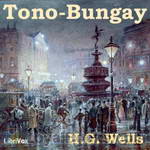 Tono-Bungay
Tono-Bungay
Tono-Bungay is a realist semi-autobiographical novel. It is narrated by George Ponderevo, a science student who is drafted in to help with the promotion of Tono-Bungay, a harmful stimulant disguised as a miraculous cure-all, the creation of his uncle Edward. The quack remedy Tono-Bungay seems to have been based upon the patent medicines Carter's Little Liver Pills and Dr. Williams' Pink Pills for Pale People.... As the tonic prospers, George experiences a swift rise in social status, elevating him to riches and opportunities that he had never imagined, nor indeed desired... | |
 Mr. Britling Sees It Through
Mr. Britling Sees It Through
"Mr. Britling Sees It Through" is H. G. Wells' attempt to make sense of World War I. It begins with a lighthearted account of an American visiting England for the first time, but the outbreak of war changes everything. Day by day and month by month, Wells chronicles the unfolding events and public reaction as witnessed by the inhabitants of one house in rural Essex. Each of the characters tries in a different way to keep their bearings in a world suddenly changed beyond recognition. This book was published in 1916 while the war was still in progress, so no clear resolution was possible... | |
 Passionate Friends
Passionate Friends
H. G. Wells is best known for his science fiction, but some of his greatest works were in other genres. The Passionate Friends is a love story. It also is a story about dreams, despair, jealousy, sex, the struggle against social convention, the future of civilization, and much much more. It is written by a father to his son, "not indeed to the child you are now, but to the man you are going to be." He writes it so that one day, perhaps when he is dead, his grown son can read it and rediscover him as a friend and equal... | |
By: Thomas Bulfinch | |
|---|---|
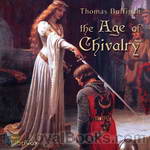 The Age of Chivalry, or Legends of King Arthur
The Age of Chivalry, or Legends of King Arthur
Thomas Bulfinch (July 15, 1796 – May 27, 1867) explains the his work is “an attempt tell the stories of mythology in such a manner as to make them a source of amusement. We have endeavored to tell them correctly, according to the ancient authorities, so that when the reader finds them referred to he may not be at a loss to recognize the reference. Thus we hope to teach mythology not as a study, but as a relaxation from study; to give our work the charm of a story-book, yet by means of it to impart a knowledge of an important branch of education... | |
 The Legends of Charlemagne
The Legends of Charlemagne
Bulfinch (July 15, 1796 - May 27, 1867) explains the his work is "an attempt tell the stories of mythology in such a manner as to make them a source of amusement. We have endeavored to tell them correctly, according to the ancient authorities, so that when the reader finds them referred to he may not be at a loss to recognize the reference. Thus we hope to teach mythology not as a study, but as a relaxation from study; to give our work the charm of a story-book, yet by means of it to impart a knowledge of an important branch of education... | |
By: Sax Rohmer (1883-1959) | |
|---|---|
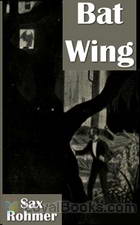 Bat Wing
Bat Wing
Private detective Paul Harley investigates a mysterious case involving voodoo, vampirism, and macabre murder in the heart of London. The first book in the Paul Harley series, written by Sax Rohmer, author of The Insidious Dr. Fu Manchu. | |
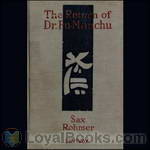 The Return of Dr. Fu-Manchu
The Return of Dr. Fu-Manchu
Burmese Commisioner Nayland Smith and his faithful friend Dr Petrie continue their fight against the evil genius of Dr Fu-Manchu when they seek to save the good doctor’s lost love and protect the British Empire from disaster when their malignant enemy returns to England. | |
 The Hand of Fu-Manchu
The Hand of Fu-Manchu
Further adventures of Nayland Smith and Doctor Petrie as they continue their battles against the evil genius, Dr Fu-Manchu. | |
 The Insidious Dr. Fu-Manchu
The Insidious Dr. Fu-Manchu
The first of the Fu-Manchu novels this story follows the two characters who are set against the machinations of the insidious doctor. | |
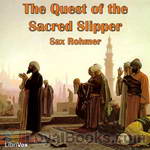 The Quest of the Sacred Slipper
The Quest of the Sacred Slipper
Cavanagh becomes involved in the adventurous search for a precious relic in the mysterious East. (Introduction by Laineyben) | |
By: Émile Zola (1840-1902) | |
|---|---|
 L'Assommoir
L'Assommoir
Émile François Zola (French pronunciation: [emil zɔˈla]) (2 April 1840 – 29 September 1902) was an influential French writer, the most important exemplar of the literary school of naturalism. More than half of Zola’s novels were part of a set of twenty novels about a family under the Second Empire collectively known as Les Rougon-Macquart. L’Assommoir (1877) is the seventh novel in the series. Usually considered one of Zola’s masterpieces, the novel—a harsh and uncompromising study of alcoholism and poverty in the working-class districts of Paris—was a huge commercial success and established Zola’s fame and reputation throughout France and the world. | |
 Therese Raquin
Therese Raquin
An unsatisfied wife kills her weak husband in order to carry on a sordid affair with another man. However, her selfish plans are spoiled when her husband continues to haunt her. This is often said to be Zola's first great novel. | |
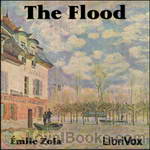 The Flood, trans. by an unknown translator
The Flood, trans. by an unknown translator
A well-to-do French farm family is destroyed by a flood. The story, thrilling to the very end, is told from the point of view of the family’s 70-year-old patriarch. The story speaks of the helplessness of mankind in the face of the forces of nature. | |
By: Aphra Behn (1640-1689) | |
|---|---|
 Rover (Part One)
Rover (Part One)
| |
By: Frank Stockton (1834-1902) | |
|---|---|
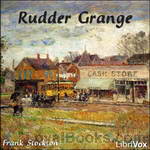 Rudder Grange
Rudder Grange
This book presents a number of short, comedic sketches of a country life in middle America in the late 1800s. The hilarious twists and turns endear our adorable, naive married couple to the reader; and the orphan servant Pomona – dear, odd, funny Pomona! – is the focus of several of the stories. Imagine a honeymoon in a lunatic asylum, and you’ve got Rudder Grange! | |
By: Joseph Sheridan LeFanu (1814-1873) | |
|---|---|
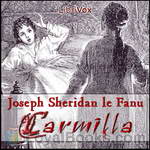 Carmilla
Carmilla
Published in 1872, Carmilla is an early work in the vampire literature genre and is incidentally one of the most influential of its type. The gothic novella accounts the tale of Laura, a young woman who becomes susceptible to the friendship and seductive charms of the mysterious Carmilla. A gripping tale of coincidence, mystery, compulsion, dark romance, and deception, Le Fanu’s classic is regarded as having paved the way for modern takes on vampires. Narrated by Laura, the novel opens with a recount of her childhood, as she depicts growing up in a beautiful, yet solitary castle encompassed by a forest in Styria, Austria... | |
By: C. S. Lewis (1898-1963) | |
|---|---|
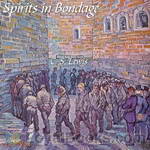 Spirits in Bondage: a cycle of lyrics
Spirits in Bondage: a cycle of lyrics
First published in 1919 under his pseudonym Clive Hamilton, Spirits in Bondage, is also the first published book by the notorious novelist C.S. Lewis. This early piece of work represents Lewis’ youth, as it was written at a time when the author had just returned from his military service in the First World War. In addition it differentiates itself from his other works, not just in terms of style, but also in themes due to his agnostic stand at the time. Written in the form of poetry, the piece is divided into three sections of poetry, each intended to be read in chronological order to gain complete access to its themes and ideas... | |
By: Booth Tarkington | |
|---|---|
 Alice Adams
Alice Adams
A Pulitzer Prize-winning novel, Alice Adams chronicles the attempts of a lower middle class American midwestern family at the turn of the 20th century to climb the social ladder. The eponymous heroine is at the heart of the story, a young woman who wants a better place in society and a better life. As Gerard Previn Meyer has stated, “Apart from being the contribution to social history its author conceived it to be, [Alice Adams] is something more, that something being what has attracted to it so large a public: its portrait of a (despite her faults) ‘lovable girl’.” | |
 Seventeen
Seventeen
A Tale of Youth and Summer Time and the Baxter Family Especially William | |